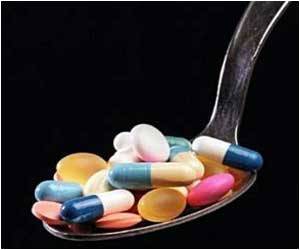Children and adolescents who are administered antipsychotic medications for the treatment of mood disorders appear to have a three-fold increased risk for type 2 diabetes, says study.

State-provided, de-identified medical records were examined for TennCare youths ages 6-24 from 1996 through 2007. During that time children and youth who were prescribed treatment with atypical antipsychotics for attention, behavioral or mood disorders, were compared with similar youth prescribed approved medications for those disorders. Even with the further elimination of certain disorders that are commonly associated with diabetes, like polycystic ovarian syndrome, those taking antipsychotics had triple the risk of developing type 2 diabetes in the following year, with the risk increasing further as cumulative dosages increased. The increased risk persisted for at least a year after the medications were stopped.
Ray and his colleagues point out developing type 2 diabetes is still rare in this age group. Of the nearly 29,000 children and youth in the antipsychotic medication group and 14,400 children in the control group, 106 were ultimately diagnosed and treated for type 2 diabetes. "That's why this study had to be so large, in order to detect clinically meaningful differences in the risk of type 2 diabetes, a relatively uncommon, but serious condition for children and youth," Ray said. The take-away message for providers, said Ray, is to carefully examine alternatives to antipsychotic use. "This is particularly important for high-risk children, for example, those with elevated weight. Children should be monitored carefully for metabolic effects predisposing them to diabetes, and use of the drug should be at the lowest possible dose for the shortest possible time," he said. The first author of this study is William V. Bobo, M.D., MPH, from the Mayo Clinic. Other Vanderbilt authors included William O. Cooper, M.D., MPH, Cornelius Vanderbilt Professor of Pediatrics and Preventive Medicine; Michael Stein, M.B.Ch.B., Dan May Chair and professor of Medicine and Pharmacology; James Daughtery, M.S. and Catherine Fuchs, M.D. , associate professor of Pediatrics and Psychiatry, along with colleagues from Columbia University and the U.S. Food and Drug Administration.
Source-Newswise















